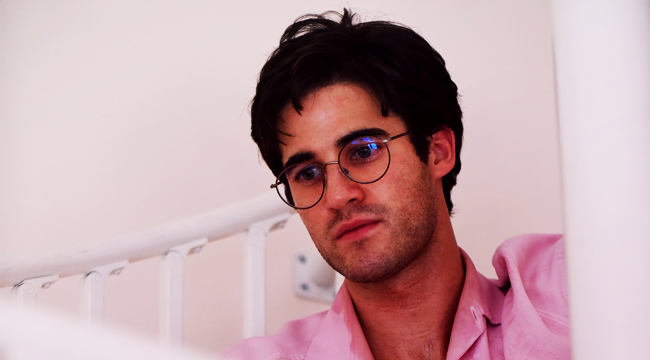
A few thoughts on the conclusion of The Assassination of Gianni Versace: American Crime Story coming up just as soon as the champagne cork pops…
Versace was a huge tonal and structural departure from the OJ season of American Crime Story. I admire Ryan Murphy’s willingness to gamble on Tom Rob Smith’s very different vision — half the fun of the anthology miniseries structure is the ability to radically change the show each time out — and appreciated the performances by Criss, Ramirez, Cruz, Martin, Light, and everyone else, but the experiment never quite came together for me.
Some of this was simply being forced to spend so much time in the company of Cunanan, when the show’s unflinching portrayal of his parastic sociopathy would be much more sustainable at movie length. And some was from Smith’s conceit of telling the story in reverse, so we only got proper context for things (the murder of Jeff Trail, that Cunanan’s story about having the master bedroom as a kid was true) well after the fact, which sucked a lot of the emotional power from the thing.
A show that went fully in reverse would have ended with last week’s “Creator/Destroyer,” the first episode to attempt to explain, and even slightly sympathize with, Cunanan as we saw how his father’s own pathological lies helped shape Andrew into the monster he became. It probably would have been a more potent end to the story than “Alone” turned out to be.
Some of this is Smith being bound by history. After murdering Versace, Cunanan eluded authorities for a week, then killed himself on that houseboat without a suicide note. So there’s no dramatic confrontation, no grand pronouncement about motive. Instead, the script lets the allegedly most important moment of Cunanan’s life flash before his eyes as the bullet enters, taking us back to his evening with Versace from the premiere, and to Gianni casually repudiating Andrew’s life philosophy by telling him to do something with his life rather than assuming greatness will simply come to him. It’s an effective scene — virtually every scene with Gianni was, which only left me wishing the show was more about him and Antonio and Donatella, and less about Cunanan — but doesn’t offer a huge amount of insight into Cunanan beyond what the previous eight episodes had told us.
This held true throughout the finale. Judith Light, Ricky Martin, and Penelope Cruz were all excellent again as Marilyn Miglin, Antonio, and Donatella each grappled with their losses. But other than perhaps Antonio reckoning with the limitations of his inheritance (due in part to not being Gianni’s legal spouse), their scenes were well-acted but thematically redundant.
The finale’s most effective reprise was the return of Max Greenfield as Ronnie, who was also there to reiterate ideas the season had put forth several times before, but in a manner so bluntly eloquent that it served his purpose. In particular, Ronnie telling the cops that they were “disgusted by him long before he became disgusting” neatly and viciously summed up the series’ attitude about why Cunanan was able to take and ruin so many lives before anyone in law-enforcement took him seriously.
Through those first eight episodes FX initially sent to critics, Versace felt like a collection of terrific pieces that added up to less than the sum of their individual parts. I had hoped the finale would retroactively elevate what had come before. Instead, it seemed a missed opportunity, like a lot of the season, down to the renewed emphasis on the Versaces after many weeks of focusing on Cunanan and, at times, his other victims.
What did everybody else think? Did Versace live up to your expectations? Did you like it more or less than the OJ season?
Alan Sepinwall may be reached at sepinwall@uproxx.com. He discusses television weekly on the TV Avalanche podcast. His new book, Breaking Bad 101, is on sale now.
